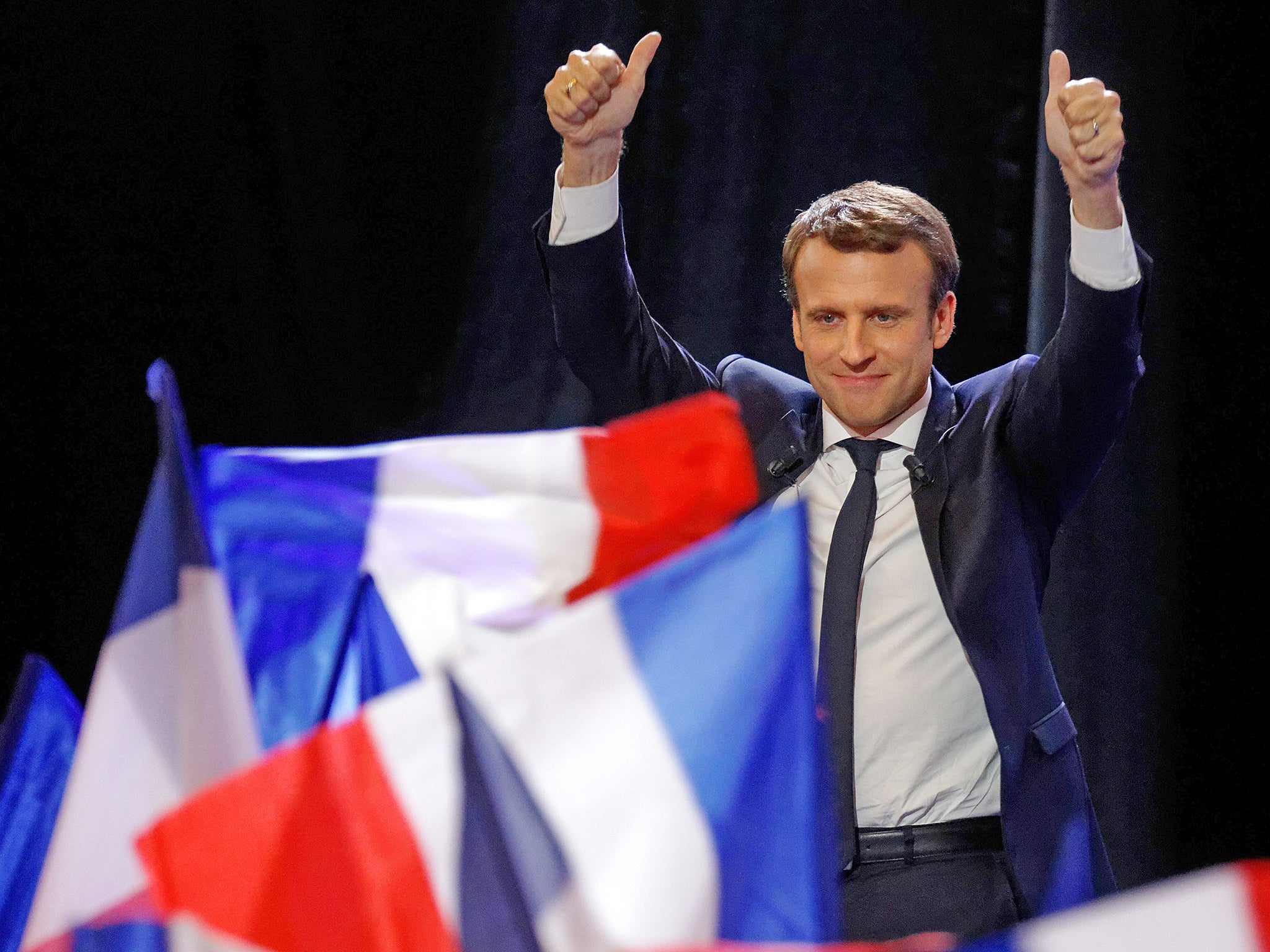Emmanuel Macron has to deliver if he wants to stem the tide of right-wing populism
The worry about France's likely next president is that, telegenic and personable as he is, he lacks the power that is needed to make his country optimistic again

Your support helps us to tell the story
From reproductive rights to climate change to Big Tech, The Independent is on the ground when the story is developing. Whether it's investigating the financials of Elon Musk's pro-Trump PAC or producing our latest documentary, 'The A Word', which shines a light on the American women fighting for reproductive rights, we know how important it is to parse out the facts from the messaging.
At such a critical moment in US history, we need reporters on the ground. Your donation allows us to keep sending journalists to speak to both sides of the story.
The Independent is trusted by Americans across the entire political spectrum. And unlike many other quality news outlets, we choose not to lock Americans out of our reporting and analysis with paywalls. We believe quality journalism should be available to everyone, paid for by those who can afford it.
Your support makes all the difference.It is tempting to see the success of Emmanuel Macron in the French elections, apparently on course to beat Marine Le Pen in the second round on 7 May, as the turning of the global populist tide. With extreme right-wingers or neo-fascists beaten in earlier high-profile contests in Austria and the Netherlands, it is possible to write a “narrative” that sees last year’s victories for Donald Trump and the Brexit campaign as mere Anglo-Saxon aberrations; despite all the problems and all the odds, western Europe and the core of the European Union survive as beacons of liberal values.
The widely anticipated confirmation of Angela Merkel in the German elections in the autumn would provide the final and most important chapter in that tale. In such circumstances, Britain's slide rightwards looks ever more eccentric and wrong-headed.
There is indeed a good deal of truth in all of that. What’s more, the attempt by the terrorists to disrupt France’s democratic processes was thwarted, and the French people had the good sense not to be manipulated by either the agents of Isis or the band of cynics led by Ms Le Pen. France is not panicking, nor is it cowed or frightened. It is proud of the republican values.
Yet France is undoubtedly a pessimistic place. Despite the material wealth and legendary way of life, the people of France are dissatisfied with their lot. Above all, they are depressed by the inability of their economy to generate sufficient jobs, especially for their young people and especially for the children and grandchildren of those who migrated to France for a better life.
As has been well documented, the banlieues many of these groups are in effect banished to are sinks, and dangerous ones. It is France’s failure to provide livelihoods for so many that has led to widespread disenchantment, and fostered the conditions for radicalisation in some cases. It is not terrorism that is the biggest threat facing France, but economic stagnation.
The worry about Mr Macron is that, telegenic and personable as he is – he is often compared to Tony Blair or JFK, unlikely thought it may seem – he lacks the power that is needed to make France optimistic again, to borrow a phrase. Without a strong political party machine behind him – his En Marche! grouping more resembles a fan club than a traditional movement – he will fail to win the necessary backing he will require to implement domestic reforms when the French go to the polls again in June to elect a new Parliament.
What, more crucially, would those policies be? He has made the right noises about slimming the French state, liberalising French labour laws, encouraging infrastructure investment and reducing business taxes. As a former economy minister, he has also grasped the vital need to supplement the European monetary union with a fiscal union to be run by a new eurozone “government”. So there are high hopes for this fresh face.
The uncomfortable aspect of his rise is that much the same was hoped for from many of his predecessors, notably Nicolas Sarkozy. The worry is that France, a temperamentally more conservative political culture than the supposedly hidebound British, will resist those painful reforms the moment they start to bite. Without a strong political base in the country and in parliament, Mr Macron will struggle to implement change even if he has won the arguments and seen off Ms Le Pen. Arguably, his is an almost accidental presidency, given that with a little more luck and a little less scandal his conservative rival François Fillon could have achieved the same, so tight was the contest.
If Mr Macron does follow the example of his immediate predecessors and deliver little in the course of his presidency, then he too will in due course be punished by the French voters, who show a near-revolutionary zeal for decapitating their failed presidents. If so, then Marine Le Pen and the Front National will still be there to offer the electors their usual fraudulent manifesto. For two decades now the respectable political parties of France have been running scared of the Le Pen family, but unable to do the one thing that would push the Front National back to fringes – fix the economy and create employment. Mr Macron is a highly intelligent man who shows every sign of “getting” this; but has the political skills and popular support to get the job done?
Join our commenting forum
Join thought-provoking conversations, follow other Independent readers and see their replies
0Comments